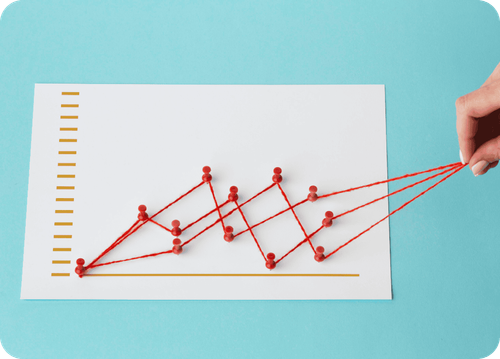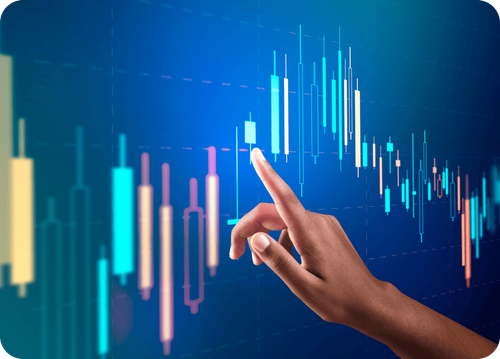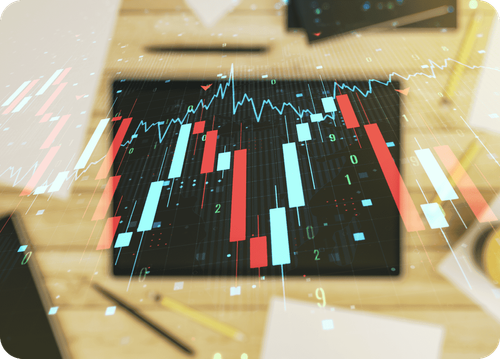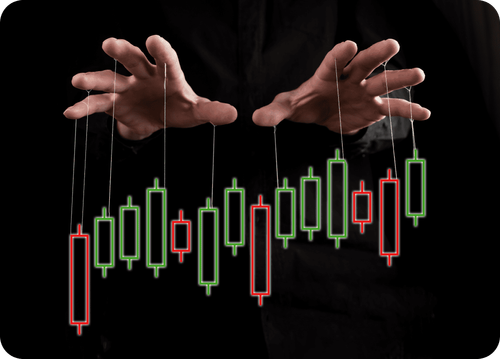How Long Does It Take to Learn Forex Trading?

Forex trading has gained immense popularity in recent years, attracting individuals from various backgrounds who are eager to try their hand at this dynamic and potentially profitable market. If you're considering delving into the world of forex trading, you might be wondering how long it takes to become proficient in this field. In this article, we'll explore the time it typically takes to learn forex trading, along with the factors that influence the learning process.

Why Learn to Trade Forex?
Before we dip into the time it takes to learn forex trading, it's essential to understand the reasons why learning this skill can be valuable. Here are a few key benefits of learning to trade forex:
Financial Independence and Flexibility: Learning forex trading can provide you with an opportunity to achieve financial independence and flexibility. The forex market operates 24/5, allowing you to trade at your convenience and potentially earn profits from the fluctuations in currency prices.
Diversification of Investment Portfolio: Forex trading allows you to diversify your investment portfolio. By adding forex to your repertoire, you can expand your trading opportunities beyond stocks, bonds, and other traditional investment vehicles.
Global Market Access: Forex trading grants you access to the global market, allowing you to trade various currency pairs from different countries. This global exposure can provide unique opportunities and insights into international economic trends.
How to Learn Forex Properly?
Learning forex trading involves acquiring knowledge and skills to make informed trading decisions. Here are some essential steps to learn forex trading properly:
Educate Yourself: Begin by educating yourself about the basics of forex trading. Understand key concepts such as currency pairs, leverage, margin, technical analysis, and fundamental analysis. Numerous online resources, courses, and books can provide you with a solid foundation.
Demo Trading: Practice is crucial when learning forex trading. Utilise demo trading accounts offered by reputable brokers to gain hands-on experience without risking real money. Demo accounts simulate real market conditions and allow you to practise various trading strategies.
Find a Mentor or Join a Trading Community: Learning from experienced traders can significantly expedite your learning process. Find a mentor who can guide you or consider joining a trading community where you can interact with fellow traders, share insights, and learn from each other's experiences.
What Are the Factors Affecting How Long it Takes to Learn Forex Trading?
The time it takes to learn forex trading can vary from person to person. Several factors influence the learning process. Here are some key factors to consider:
Time Dedication: The amount of time you dedicate to learning forex trading plays a significant role in the learning curve. Consistent and focused effort, combined with continuous learning and practice, can expedite your progress.
Prior Knowledge and Experience: Having prior knowledge or experience in financial markets can provide a head start in learning forex trading. Familiarity with economic indicators, financial news, and technical analysis can accelerate the learning process.
Learning Style and Adaptability: Each individual has a unique learning style. Some people grasp concepts quickly through reading, while others prefer visual or hands-on learning. Adapt your learning approach to suit your style, which can help you understand and retain information more effectively.
What Are the Common Mistakes that Influence Time Taken to Learn Forex Trading?
While learning forex trading, it's important to be aware of common mistakes that can impact the time it takes to become proficient. By avoiding these pitfalls, you can streamline your learning journey. Here are some common mistakes to watch out for:
Impatience: Forex trading requires patience and discipline. Rushing into live trading without a solid understanding of the market can lead to costly mistakes. Take the time to learn and practice before risking real capital.
Overtrading: Overtrading is a common mistake among novice traders. It involves excessive trading without proper analysis or adherence to a trading plan. Focus on quality trades rather than quantity and avoid the temptation of impulsive trading.
Lack of Risk Management: Neglecting risk management can be detrimental to your trading success. Set appropriate stop-loss orders, manage your leverage wisely, and avoid risking more than you can afford to lose. Understanding and implementing risk management strategies is crucial for long-term profitability.
What Are the Resources for Learning Forex?
Various resources are available to help you learn forex trading effectively. Here are some valuable resources to consider:
Online Courses and Webinars: Numerous online platforms offer comprehensive forex trading courses and webinars. These resources cover various topics, from basic concepts to advanced trading strategies. Look for reputable sources with positive reviews to ensure high-quality education.
Trading Books: Trading books authored by experienced traders can provide valuable insights and practical knowledge. Explore books that cover forex trading, technical analysis, risk management, and trading psychology.
Trading Forums and Communities: Engaging with fellow traders in online forums and communities can expand your knowledge base. Participate in discussions, ask questions, and share your experiences to gain insights from traders with diverse backgrounds.
Bottom Line and Key Takeaways
The time it takes to learn forex trading varies depending on individual factors and the level of dedication. It's important to approach learning with patience, discipline, and a thirst for knowledge. Remember these key takeaways:
- Forex trading offers financial independence, flexibility, and a chance to diversify your investment portfolio.
- Proper education, demo trading, and learning from experienced traders are vital steps in the learning process.
- Factors like time dedication, prior knowledge, and adaptability influence the learning curve.
- Avoid common mistakes such as impatience, overtrading, and lack of risk management.
- Utilise online courses, trading books, and trading communities to enhance your learning experience.
Maboko holds a BTech in Metallurgical Engineering and has been in the financial market for over 6 years. He has experience in market analysis and systematic trading strategies.
Becoming a profitable forex trader varies for each individual. It depends on factors such as your learning style, time dedication, and ability to apply effective trading strategies. On average, it may take several months to a few years to become consistently profitable.
Yes, you can learn forex trading without prior experience in finance. Forex trading education resources cater to both beginners and experienced individuals. With dedication and the right learning materials, anyone can grasp the fundamentals of forex trading.
Both fundamental and technical analysis are essential in forex trading. Fundamental analysis focuses on economic indicators, news events, and geopolitical factors, while technical analysis involves studying price charts and patterns. A balanced approach that incorporates both can enhance your trading decisions.
Forex trading may not be suitable for everyone. It requires a certain level of dedication, risk tolerance, and financial resources. Before diving into forex trading, assess your personal circumstances and consider consulting with a financial advisor to determine if it aligns with your goals and risk appetite.
Managing emotions is crucial in forex trading. Develop a trading plan, set realistic expectations, and practise disciplined risk management. Also, understanding your own emotions and implementing strategies to control them, such as taking breaks and seeking support from trading communities, can help manage the emotional rollercoaster of trading.
Read also
BCS Markets SA (Pty) Ltd. is an authorized Financial Service Provider and is regulated by the South African Financial Sector Conduct Authority (FSP No.51404). BCS Markets SA Proprietary Limited trading as BROKSTOCK.
The materials on this website (the “Site”) are intended for informational purposes only. Use of and access to the Site and the information, materials, services, and other content available on or through the Site (“Content”) are subject to the laws of South Africa.
Risk notice Margin trading in financial instruments carries a high level of risk, and may not be suitable for all users. It is essential to understand that investing in financial instruments requires extensive knowledge and significant experience in the investment field, as well as an understanding of the nature and complexity of financial instruments, and the ability to determine the volume of investment and assess the associated risks. BCS Markets SA (Pty) Ltd pays attention to the fact that quotes, charts and conversion rates, prices, analytic indicators and other data presented on this website may not correspond to quotes on trading platforms and are not necessarily real-time nor accurate. The delay of the data in relation to real-time is equal to 15 minutes but is not limited. This indicates that prices may differ from actual prices in the relevant market, and are not suitable for trading purposes. Before deciding to trade the products offered by BCS Markets SA (Pty) Ltd., a user should carefully consider his objectives, financial position, needs and level of experience. The Content is for informational purposes only and it should not construe any such information or other material as legal, tax, investment, financial, or other advice. BCS Markets SA (Pty) Ltd will not accept any liability for loss or damage as a result of reliance on the information contained within this Site including data, quotes, conversion rates, etc.
Third party content BCS Markets SA (Pty) Ltd. may provide materials produced by third parties or links to other websites. Such materials and websites are provided by third parties and are not under BCS Markets SA (Pty) Ltd.'s direct control. In exchange for using the Site, the user agrees not to hold BCS Markets SA (Pty) Ltd., its affiliates or any third party service provider liable for any possible claim for damages arising from any decision user makes based on information or other Content made available to the user through the Site.
Limitation of liability The user’s exclusive remedy for dissatisfaction with the Site and Content is to discontinue using the Site and Content. BCS Markets SA (Pty) Ltd. is not liable for any direct, indirect, incidental, consequential, special or punitive damages. Working with BCS Markets SA you are trading share CFDs. When trading CFDs on shares you do not own the underlying asset. Share CFDs are complex instruments and come with a high risk of losing money rapidly due to leverage. A high percentage of retail traders accounts lose money when trading CFDs with their provider. All rights reserved. Any use of Site materials without permission is prohibited.





